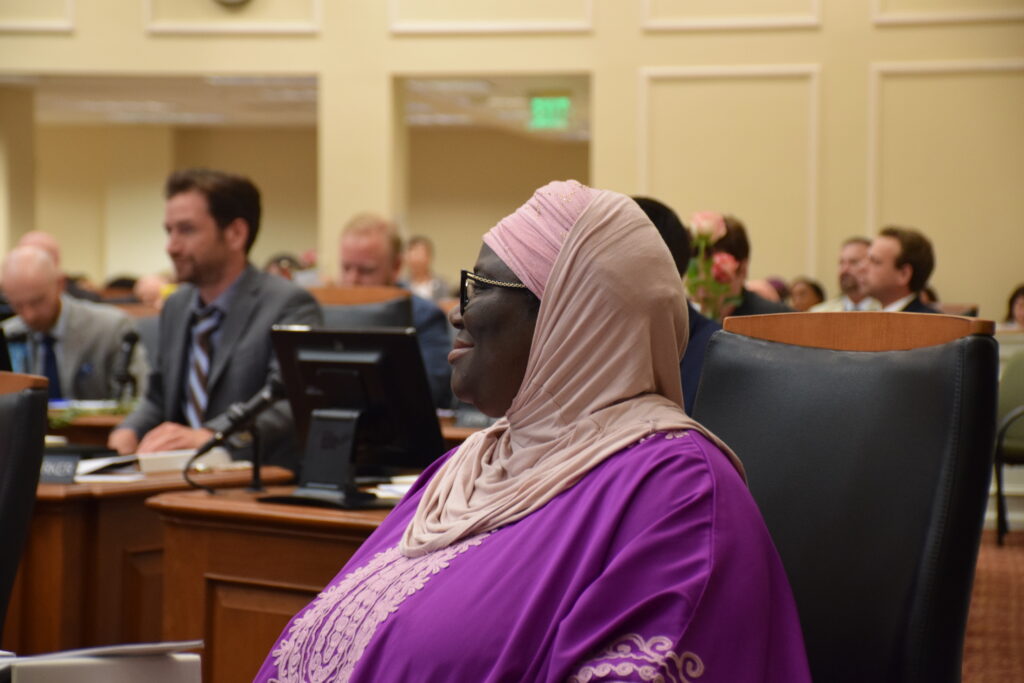
After white nationalist groups marched and rallied in Nashville this summer, city leaders reacted with a slate of legislation.
A half dozen measures began making their way through the Metro Council this week. Four bills came straight from Nashville Mayor Freddie O’Connell. Those proposals include:
- prohibiting passing out flyers on private property after dark;
- clarifying laws around masks used as disguises;
- creating “buffer-zones” around public buildings, and;
- banning signs hung over highways.
“We know that political tensions are high. We’ve seen that in this building in the past few month,” O’Connell told reporters after unveiling the proposals late last month. “And this legislation, we hope, will discourage behavior that can spark violence.”
All four bills advanced without discussion — as is common on first reading. But, two others ideas faced some debate.
Councilmember Jeff Preptit wants to prohibit Metro employees from joining criminal hate groups or paramilitary gangs. His bill, which previously singled out Metro police, was first introduced in July and deferred.
Upon its return, the bill was updated to include all employees of the Metro government. Preptit told the council that the substitute was the culmination of weeks of work involving the Metro Nashville Police Department, Nashville Fire Department and Metro Legal.
“These (hate) groups undermine the role and efficacy of public safety, damage the institutional reputation of our agencies, and erode the trust not only within these agencies but also in the community,” Preptit said Tuesday. “MNPD, Nashville Fire and all Metro agencies are committed to prohibiting biased and unlawful behavior that undermine their vital role of serving our community. This legislation bolsters that commitment.”
The bill was on first reading, which usually means smooth sailing. But some, like Councilmember Jeff Eslick, questioned how the bill would define a hate group.
“I think it’s a pretty broad definition,” Eslick said. “We’re not all going to agree on what would a hate group be, so therefore I’m against this substitute.”
In its current form, the legislation describes a hate group as:
“any person or group that incites, or provides material supports for criminal acts or criminal conspiracies that promote violence toward racial, religious, ethnic, sexual, gender, or other groups or classes of individuals.”
For now, the bill has advanced. But it will need to go through two more readings.
There is one measure that is taking effect: a rule change from Councilmember Zulfat Suara. Spurred by an out-of-town hate group entering the council gallery, the rule will now require public commenters who speak during the Metro Council’s public comment period to prove they live in Tennessee.
“I don’t think it’s fair to subject ourselves and subject our constituents to hateful rhetoric,” Suara said. “We’re saying that if you’re not our voters, you don’t work here, you don’t live here, we don’t have to give you a platform.”
This rule change will take effect in 30 days, and will be first implemented in the Oct. 15 meeting of the Metro Council.

